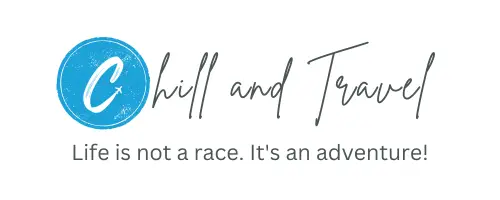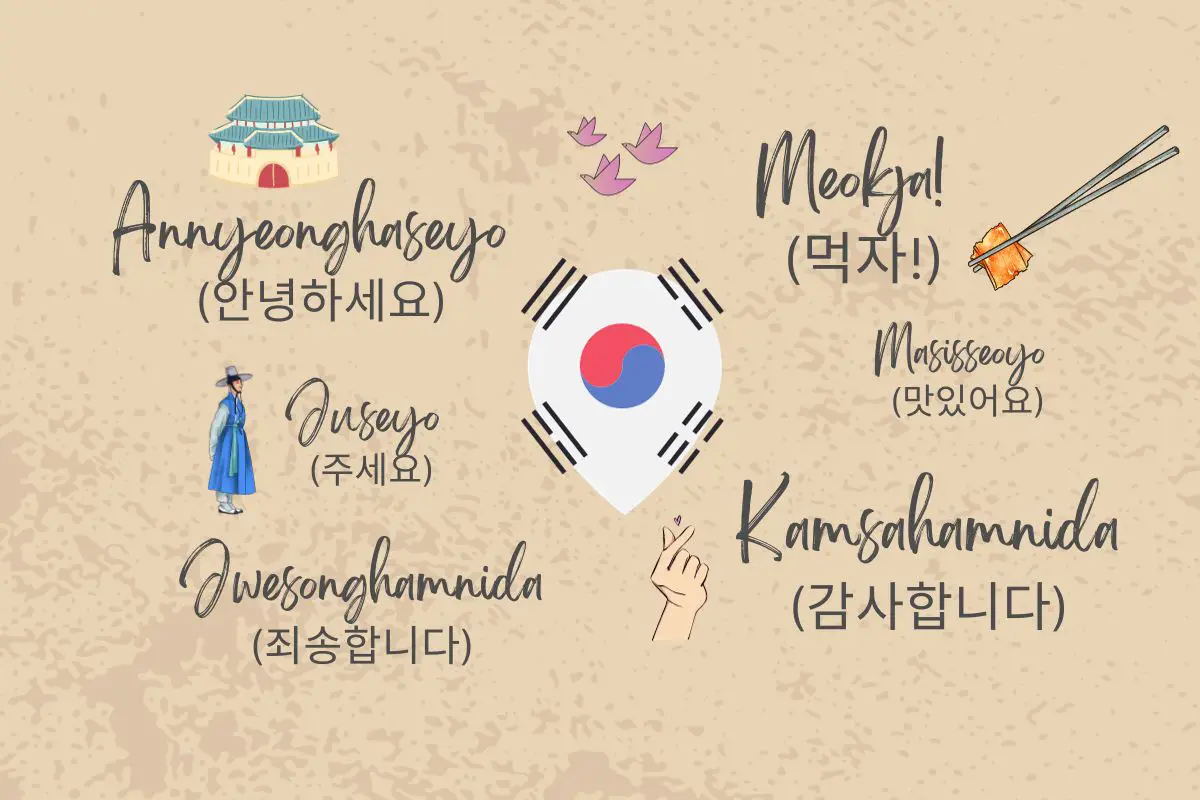49 Useful Korean Words & Phrases to Learn for Travelers
The Hallyu culture or Korean wave has taken the world by storm. From K-pop and K-drama to K-beauty and K-travel, it would be an advantage if you understand (or master!) some basic Korean words and phrases.
|
Tip: Preparing for your South Korea trip? Secure your travel essentials like your Korea SIM card, T-Money card, and other Korea tourist cards. Do you know that you can have an unlimited data SIM + T-Money card in one? You don’t have to buy them separately so it’s pretty convenient! |
On both our Korea trips (winter and spring), we regret not arming ourselves with some useful Korean words and phrases. If not for our bilingual friends who helped us translate some English and Filipino to Korean words and phrases, it would have been a lot more challenging for us to explore and interact with the locals.
Now, we are trying to learn the Korean language, starting off with these useful Korean words and phrases for travel.
Basic Korean words and phrases for introductions and greetings
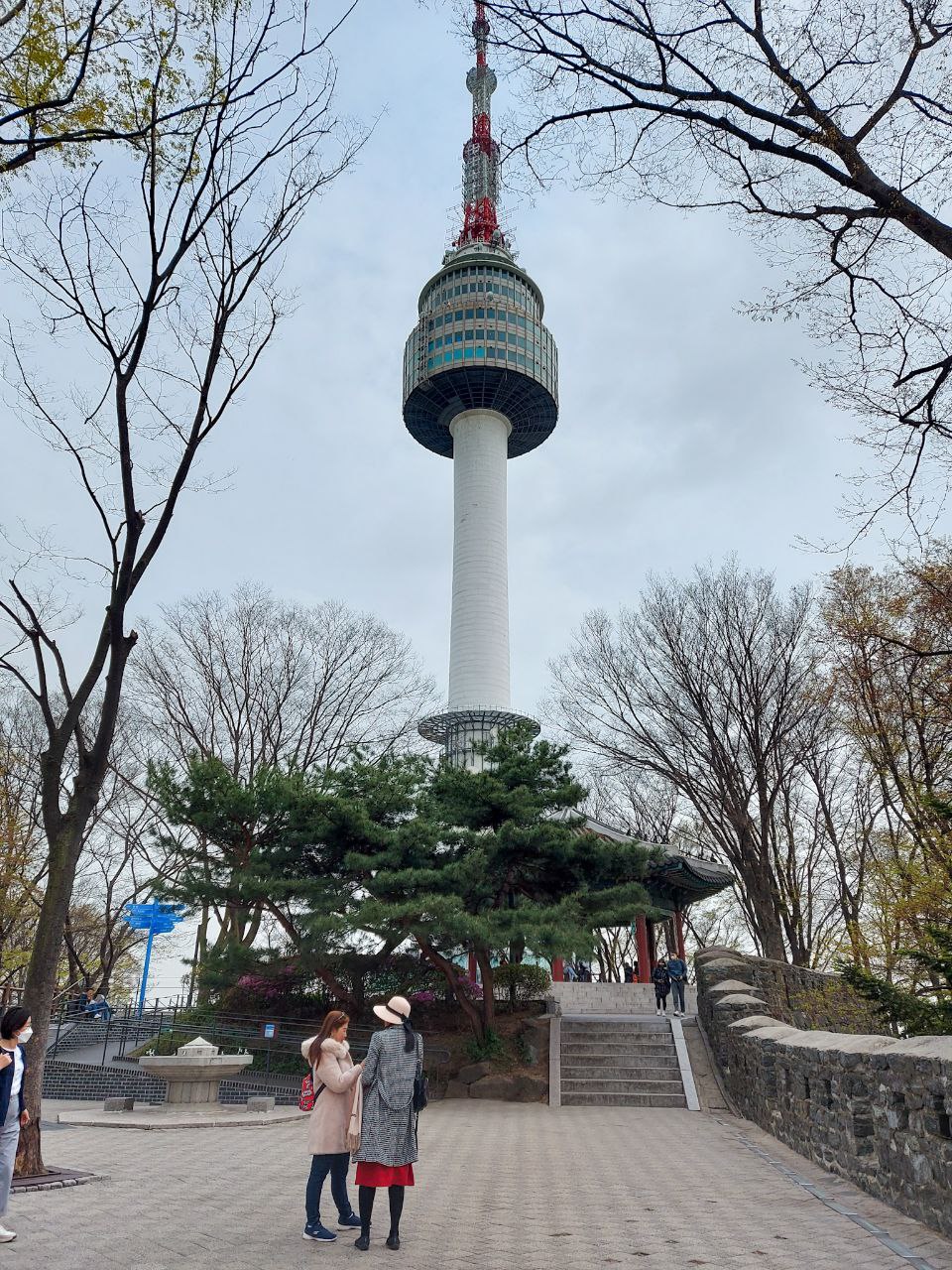

1. “Annyeonghaseyo” (안녕하세요) = “Hello” / “Hi”
Annyeonghaseyo (안녕하세요) is the standard way of saying “Hi” or “Hello” in Korean. According to our friend who now lives in Korea, it’s more respectful to say “Annyeonghaseyo” completely instead of “Annyeong” only, especially if you don’t know the person yet.
2. “Mannaseo bangapseumnida!” (만나서 반갑습니다!) / “Mannaseo bangawoyo!” (만나서 반가워요!) = “Nice to meet you!”
The standard way of saying “Nice to meet you!” in Korean is Mannaseo bangawoyo! (만나서 반가워요!), which is safe to say to everyone. However, it’s not as polite as the formal version Mannaseo bangapseumnida! (만나서 반갑습니다!), which you can use when speaking to someone with a higher social rank or to a large group.
3. “Eotteoke jinaesseoyo?” (어떻게 지냈어요?) = “How are you?”
This is a formal way of asking how your friend is doing. A more casual way would be, “Jal jinaesseo?” (잘 지냈어?). Do note that these Korean phrases are only used among friends, and not acquaintances or strangers.
4. “Aniyo. Gwaenchanayo.” (아니요 괜찮아요.) = “No. It’s okay.”
You use this Korean phrase when politely declining something, like when you are asked if you need a receipt, you can reply, “Aniyo. Gwaenchanayo.” (No. It’s okay.)
5. “Ireumi mwoyeyo?” (이름이 뭐예요?) = “What’s your name?”
There are many ways to ask “What’s your name?” in Korean, but this one’s the everyday version, which is generally acceptable by most Koreans.
6. “Je ireumeun <name>ibnida / iyeyo.” (제 이름은 <name>입니다 / 이예요.) = “My name is <name>.”
This is your reply to the person asking for your name. See samples below:
- Je ireumeun Benyeyo. (제 이름은 벤예요.) = “My name is Ben.”
- Benieyo. (벤예요) = “Ben.”
- Naneun Benida. (나는 벤이다.) = “I’m Ben.”
7. “Eodieseo wasseoyo?” (어디에서 왔어요?) = “Where are you from?”
This is the standard way of asking where the person is from.
8. “Jeoneun <place> eseo wasseoyo.” (저는 <place> 에서 왔어요.) = “I’m from <place>.”
This is your reply when asked where you are from. For example, Jeoneun Pillipineseo wasseoyo. (저는 필리핀에서 왔어요.) means “I’m from the Philippines.”
9. “<Language> hal su isseuseyo?” (<language> 할 수 있으세요?) = “Do you speak <language>?”
To ask if the person speaks a certain language, use this Korean phrase. For instance, you can say “Yeongeo hal su isseuseyo?” (영어 할 수 있으세요?) if you want to ask, “Do you speak English?”.
10. “Jogeum” (조금) = “A little bit”
Use this Korean word if you want to answer “a little” or “a little bit”.
11. “Ihaega andwaeyo.” (이해가 안돼요.) = “I do not understand.”
If you don’t understand, just use this Korean phrase.
12. “Moleugessseubnida.” (모르겠습니다.) = “I don’t know.”
And if you don’t know, you can reply with this Korean phrase.
13. “Ne” (네) / “Ye” (예) = “Yes”
There are different ways to say yes in Korean, but the standard one is Ne (네), and the more polite version is Ye (예).
14. “Aniyo” (아니요) = “No”
This is the standard and most basic way of saying no in Korean.
15. “Amado” (아마도) = “Maybe”
This is the Korean word translation for maybe.
Useful Korean words and phrases for social etiquette


16. “Kamsahamnida“ (감사합니다) / “Gomapseumnida” (고맙습니다) = “Thank you”
Kamsahamnida (감사합니다) is the Korean word for thank you. There are multiple ways to express gratitude or say thank you in Korean. See the different usage and levels of politeness below:
- Kamsahamnida (감사합니다) – Formal and most common way
- Gomapseumnida (고맙습니다) – Polite way and still widely used
- Gomawoyo (고마워요) – Less formal and used between friends
- Gomawo (고마워) – Informal version and used between close friends of the same age or younger than you
17. “Aniyeyo” (아니예요) = “Not a big deal.”
It can be nuanced as “You’re welcome” in Korean language.
18. “Annyeonghi gaseyo” (안녕히 가세요) / “Annyeonghi gyeseyo” (안녕히 계세요) = “Goodbye”
Use Annyeonghi gaseyo (안녕히 가세요) when saying goodbye to the person leaving. But if you are the one leaving, you should say Annyeonghi gyeseyo (안녕히 계세요) instead.
19. “Juseyo” (주세요) = “Please”
Use this Korean word when you ask for a favor or say please.
20. “Jwesonghamnida” (죄송합니다) = “Sorry”
Say this Korean word if you want to apologize.
Helpful Korean phrases for travel and exploration
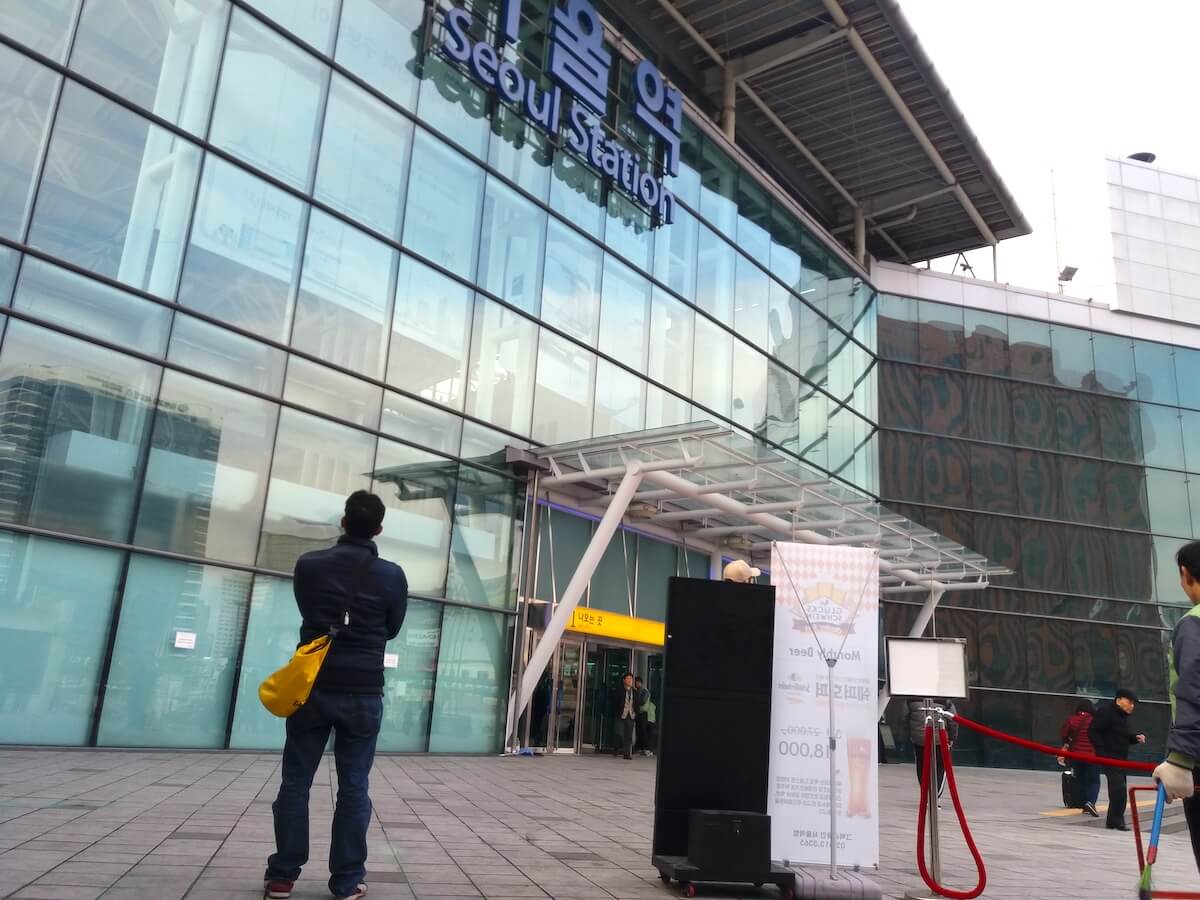

21. “Eodie isseoyo?” (어디에 있어요?) = “Where is it?”
Use this Korean word if you’re asking for the location of a place. For instance, if you’re asking, “Where’s the toilet?”, you can say, “Hwajangsil eodie isseoyo?” (화장실 어디에 있어요?).
22. “Eodi gaseyo?” (어디 가세요?) = “Where are you going?”
As mentioned previously, Eodi (어디) means where. Just add gaseyo (가세요) to form the question “Where are you going?”.
23. “Jeoneun jibe galgeoyeyo.” (저는 집에 갈거예요.) = “I’m going home.”
This is what you say when you’re going home.
24. “Eotteoke gayo?” (어떻게 가요?) = “How to get there?”
Eotteoke (어떻게) means “how” in Korean. Use the Korean phrase above if you’re asking for directions on how to get there.
25. “Yogeumeun eolmayeyo?” (요금은 얼마예요?) = “How much is the fare?”
Use this Korean phrase if you’re asking how much to pay for the fare.
26. “Baro orgeyo.” (바로 올게요.) = “I’ll be right back.”
This is what you say when you have to leave temporarily but will be right back.
27. “Gileul ilheosseoyo!” (길을 잃었어요!) = “I’m lost!”
Utter this when you’re lost, especially when navigating a new location or place.
28. “Dowajuseyo!” (도와주세요!) = “Help me!”
Say this Korean word when you need help.
29. “WiFi isseoyo?” (와이피이 있어요?) = “Do you have WiFi?”
Say this Korean phrase to ask if the establishment has WiFi.
30. “Bimilbeonho al su isseulkkayo?” (비밀번호 알 수 있을까요?) = “May I know the password?”
If they do have WiFi, you can then proceed to ask for the password.
Tip: Avoid the hassle of asking for free WiFi by getting your own Korea SIM card or pocket WiFi before your trip.
Practical Korean words and phrases for shopping
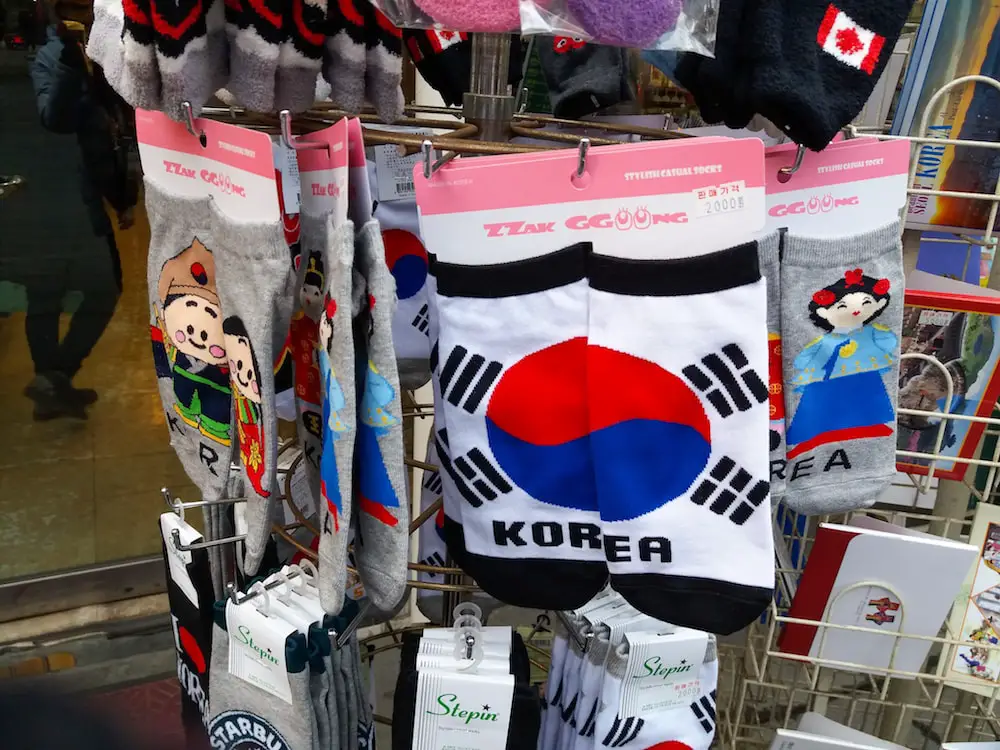

31. “Eolmayeyo?” (얼마예요?) = “How much?”
You can use this standard Korean word to ask for the price of something.
32. “Igeon mwoyeyo?” (이건 뭐예요?) = “What is this?”
You can use this Korean phrase if you’re curious about the item you want to buy.
33. “Jeoge mwoyeyo?” (저게 뭐예요?) = “What is that?”
Change Igeon (이건) with Jeoge (저게) to make it “that”.
34. “Harini isseoyo?” (할인이 있어요?) = “Is there a discount?”
This is what you say when asking if there is still a discount.
35. “Igeo juseyo.” (이거 주세요.) = “Please give me this.”
Use this Korean phrase if you have already decided on what to buy and would like to get the item.
36. “Yeongsujeung juseyo.” (영수증 주세요.) = “Please give me a receipt.”
After purchasing an item, you can always request for a receipt, especially if you are planning to claim for a tourist refund.
37. “Myeochsie gage mun yeol-eoyo?” (몇시에 가게 문 열어요?) = “What time does the store open?”
Say this if you want to know when the store opens.
38. “Myeochsie gage mun dad-ayo??” (몇시에 가게 문 닫아요?) = “What time does the store close?”
And if you want to know the store’s closing time, use this.
Handy Korean words and phrases for eating
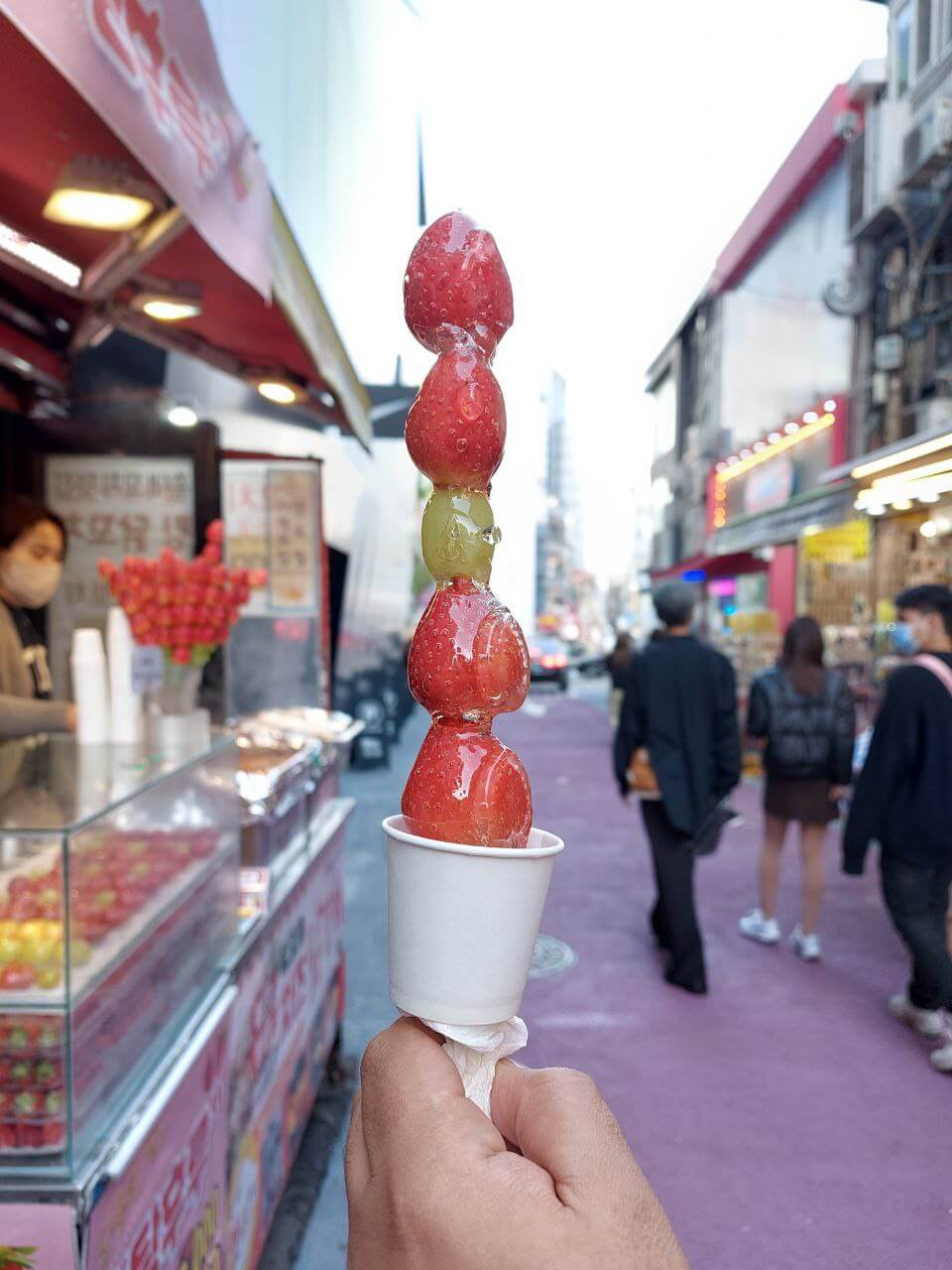

39. “Meokja!” (먹자!) = “Let’s eat!”
This is the Korean word or expression for “Let’s eat!”.
40. “Masissge deuseyo!” (맛있게 드세요!) = “Enjoy your meal!”
This is the Korean translation for bon appetite!
41. “Bap meogeoseoyo?” (밥 먹었어요?) = “Have you eaten?”
Use this Korean phrase to ask if the person has eaten already. It can also be nuanced as saying “hi” or “hello” to someone.
42. “Aniyo. Ajig iyo.” (아니요. 아직이요.) = “No. Not yet.”
This is your reply if you haven’t eaten yet.
43. “Baegopayo.” (배고파요.) = “I’m hungry.”
Although there are different ways of expressing you are hungry, this is the standard way of saying it in Korean.
44. “Baebulleoyo.” (배불러요.) = “I’m full.”
And when you are already full, just say this Korean word.
45. “Jal meogeotseumnida.” (잘 먹었습니다.) = I ate well.
This is what you say after eating and you enjoyed the meal.
46. “Masisseoyo!” (맛있어요!) = “Delicious!”
This is a common way of saying “delicious” in Korean. Just add Wanjeon (완전) as in Wanjeon masisseoyo! (완전 맛있어요!), if you want to say, “It’s very delicious!”.
47. “Dalkomhada! (달콤하다!) = “It’s sweet!”
This is how you describe a food that tastes sweet.
48. “Menyu jom juseyo.” (메뉴 좀 주세요.) = “Please give me the menu.”
This is what you say when you can’t find the menu on the wall and you’d want to ask for it from the waiter or attendant.
49. “Gyesanhalkkeyo.” (계산할게요.) = “I’ll pay for the bill.”
This is what you say when you already want to pay the bill.
These are just some of the useful Korean words and phrases to learn for a start. We’ll keep updating this list once we learn more words and phrases that’ll be useful for travelers to South Korea.
Do you have more Korean words and phrases to add? Do let us know on our social media channels: Facebook, Instagram, Twitter, Pinterest, and YouTube.
*Special thanks to Kevin, our polyglot friend who now lives in Korea, for reviewing our Korean language translation.
